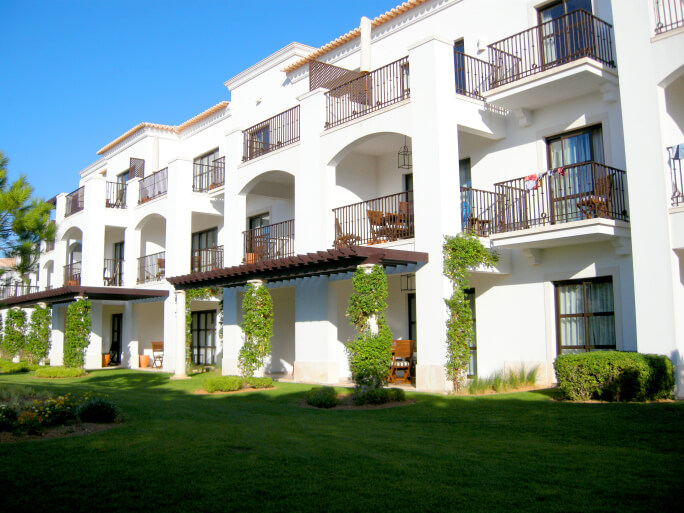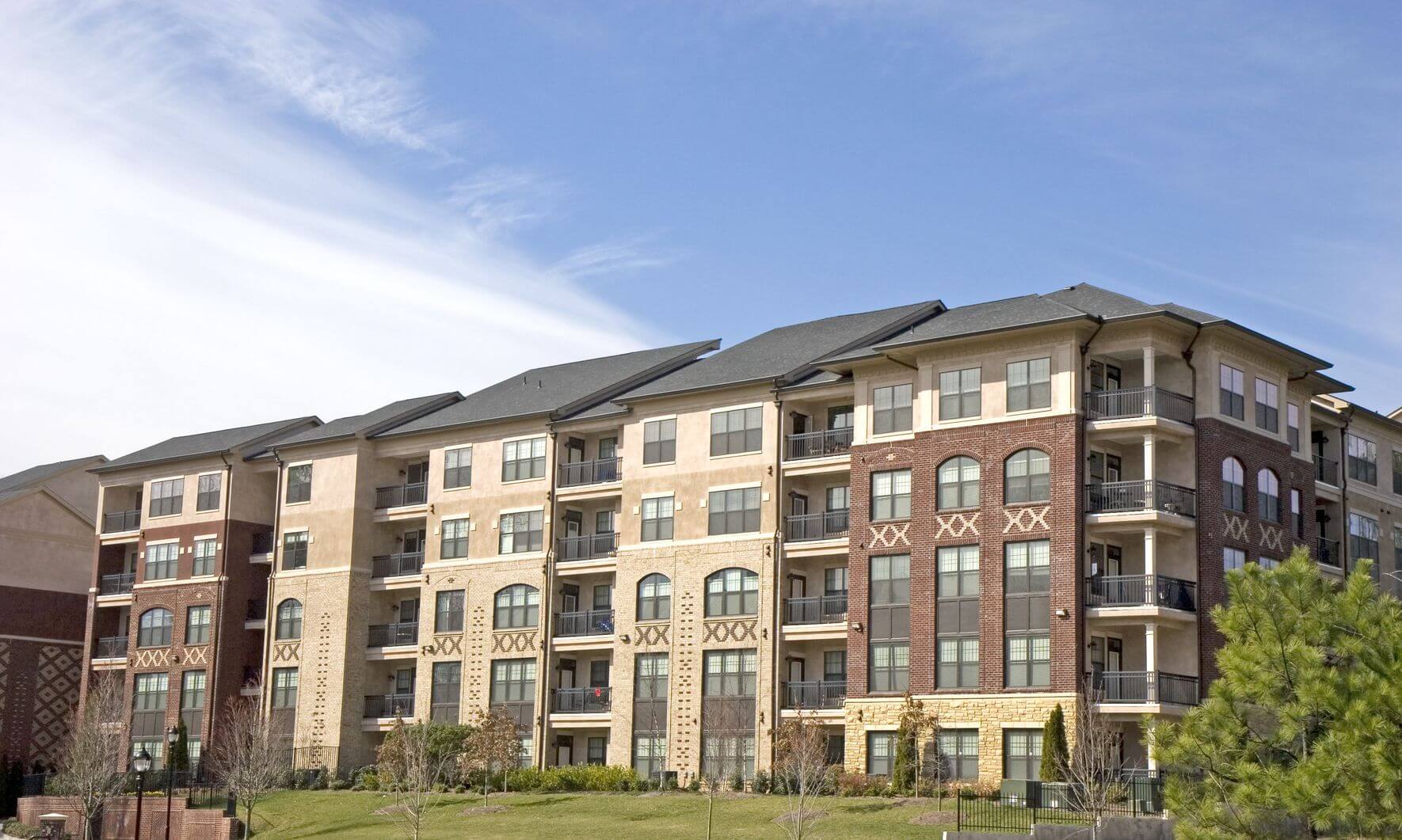
Apartment vs. Condo: What’s the Difference?
If you are in the market for a place to live but want to keep things simple to start, then chances are that you will be shopping for an apartment or condo. So what’s the difference between an apartment vs. a condo? While each type of housing unit can come in a wide range of styles, the main difference between the two lies in the form of ownership. Basically, the definition of a condo is a unit that’s owned individually, with the common areas of the complex owned equally among all condo owners under the umbrella of an association. In contrast, typically an apartment building is completely owned by a single owner, often a corporation, with the individual units leased to various occupants.
Pros and Cons of Renting an Apartment
Apartment living gives renters a great deal of flexibility and plenty of options, but there are some negatives. Here are some of the main pros and cons of renting an apartment.
Pros
- Flexibility: When you rent an apartment, you will have the option of choosing a short-term or longer lease. Some apartment complexes will even allow you to rent on a month to month basis. This gives you a great deal of flexibility and the ability to move out when you want to without repercussions. If you are between jobs or in a time of transition, this will make like much easier for you.
- No Maintenance Worries: When you rent and something breaks, the onus is on the owner to take care of it in a timely manner. This takes a lot of pressure off, especially if money is tight, as you won’t need to worry about any unexpected repairs popping up. You will in all likelihood have access to a maintenance manager and staff who will be able to take care of any repairs you need.
- Lower Upfront Expenses: It will cost a lot less to get into a rental than to buy a condo. As a renter, you will just have to come up with a security deposit and first month’s rent, while with buying you will need enough for a down payment as well as to cover closing costs. In addition, renter insurance is really affordable.
Cons
- No Long-Term Investment: When you rent an apartment, you are basically giving your money to the apartment owner with no chance of recouping some of it later via appreciation when you sell the unit.
- No Tax Deductions: When you rent, you don’t receive the tax deductions that come with home or condo ownership.
- Rent Can Increase: Over time, landlords will raise your rent to cover increased costs or because the rental market has improved.
- Less Stability: When you rent, you have no control on where you live beyond the terms of your current lease. Therefore, if the owner chooses not to renew, you may be forced to move.
- A Lack of Freedom: Most apartment building have restrictions of what type (if any) remodeling you are allowed to undertake. Chances are if you don’t like the carpets you are stuck with them. In addition, the apartment owner may have other restrictions in place, such as whether pets are allowed.
Pros and Cons of Buying a Condo
Likewise, there are benefits and negatives of making the plunge and buying that condo.
Pros
- Affordability: While it’s generally cheaper to rent an apartment than to buy a condo, compared to buying a house condos are quite affordable. Except in really desirable locations, a condo will be priced lower than a single family home, making this a great first step if you are looking to dive into the realm of home ownership.
- Mortgage Payments Don’t Increase: Unlike rents, monthly payments on a mortgage don’t increase after you take out the loan.
- General Maintenance: While those who rent apartments are treated to a full maintenance package, if you own your own condo you will still enjoy the benefits of having some of the maintenance taken care for you. Condo homeowners’ associations take care of the big things such as a leaky roof, broken furnace, and landscaping and grounds maintenance.
- Appreciations and Tax Benefits: Every time you make a payment on your condo, you are making an investment that you will hopefully be able to cash in on when it comes time to sell. In addition, since you are an owner, you are eligible for various tax deductions that aren’t available to renters. This includes mortgage interest, property tax, and PMI deductions.
Cons
- Homeowners Association Fees: Keep in mind that when you buy a condo, you essentially become a business partner in that shared community, and as such, you will be expected to pay homeowners association dues on a monthly basis. While these fees vary widely from one condo to the next, they can average around $300 a month, so make sure you know exactly what this fee will be before you buy. In addition to monthly fees, condo associations may make special assessments of owners to cover major improvements or repairs.
- The Potential for Delinquency: One thing many people don’t realize is that condo owners are responsible for the delinquency of other owners in their complex. Thus, when condo owners drop out of paying their association dues for whatever reason, dues go up for everyone else to cover this shortage of funds.
- Challenging to Sell: Condos don’t tend to move as quickly in the real estate market as quickly as single-family homes (since essentially all units in a building look the same), which can pose a challenge if your circumstances change and you need to move quickly. Additionally, condos appreciate in value more slowly than single-family homes because you don’t own any land, which is the biggest driver for appreciation these days. And, of course, real estate markets can go down as well as up, and you may have to sell at a loss.
See also: 5 Questions to Ask Before You Buy a Condo
Rent vs. Buy: What’s the Best Deal for You?
Or, to put it another way, are you better off investing your money in a condo down payment or leaving it in the bank or another form of financial investment while you rent? That depends on rents where you live, current mortgage rates and other factors. It’s complicated enough that you’ll need an online rent vs. buy calculator. Enter in the calculator your best guesses on how much rents are likely to increase, how much condo prices are likely to appreciate, your tax rate and other bits of data and the calculator will tell you which option is the best deal over what period of time. In a fast rising-real estate market, buying could beat renting in a few years, while in a cheap rental market, renting could beat buying for a long time.


